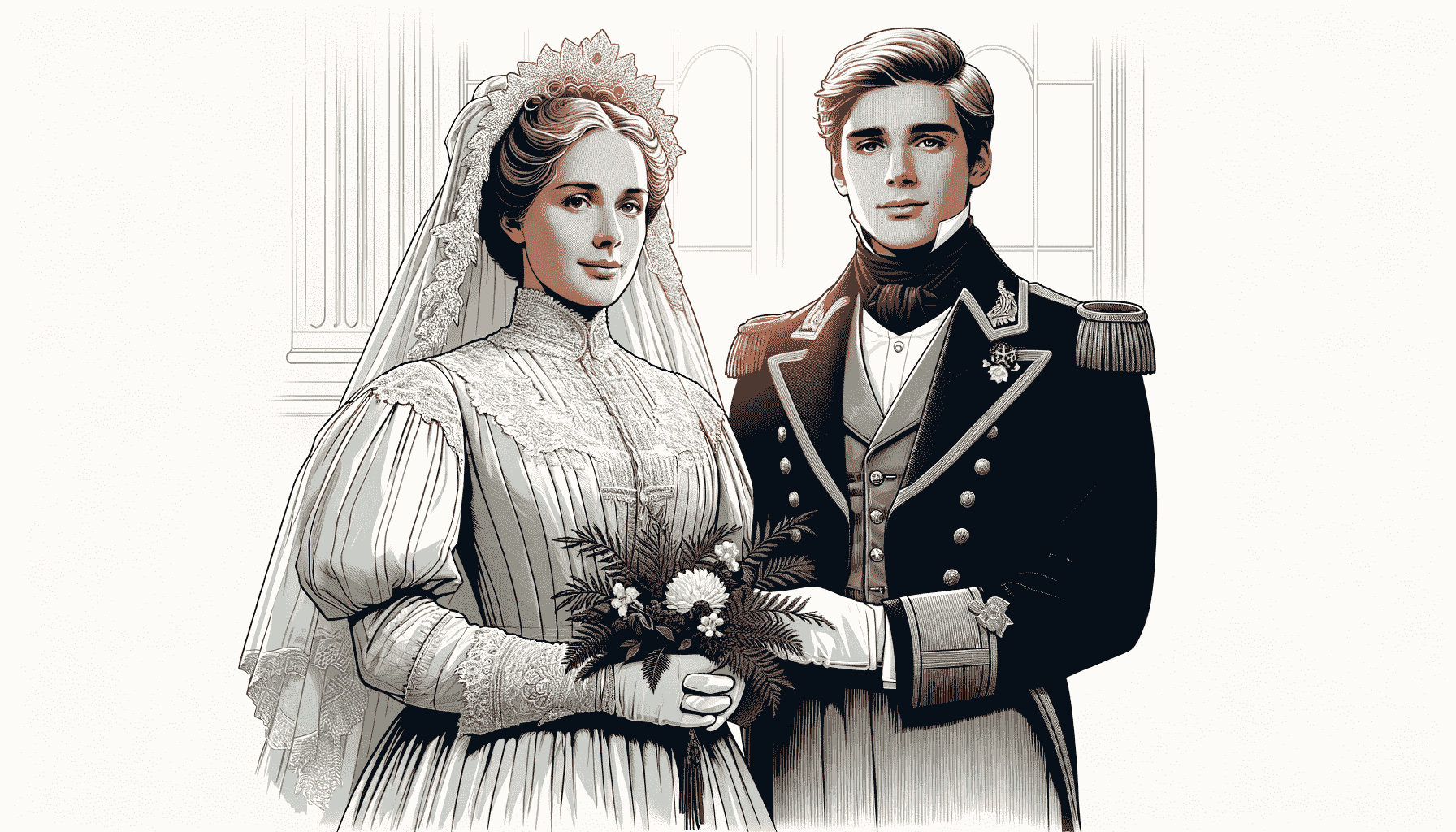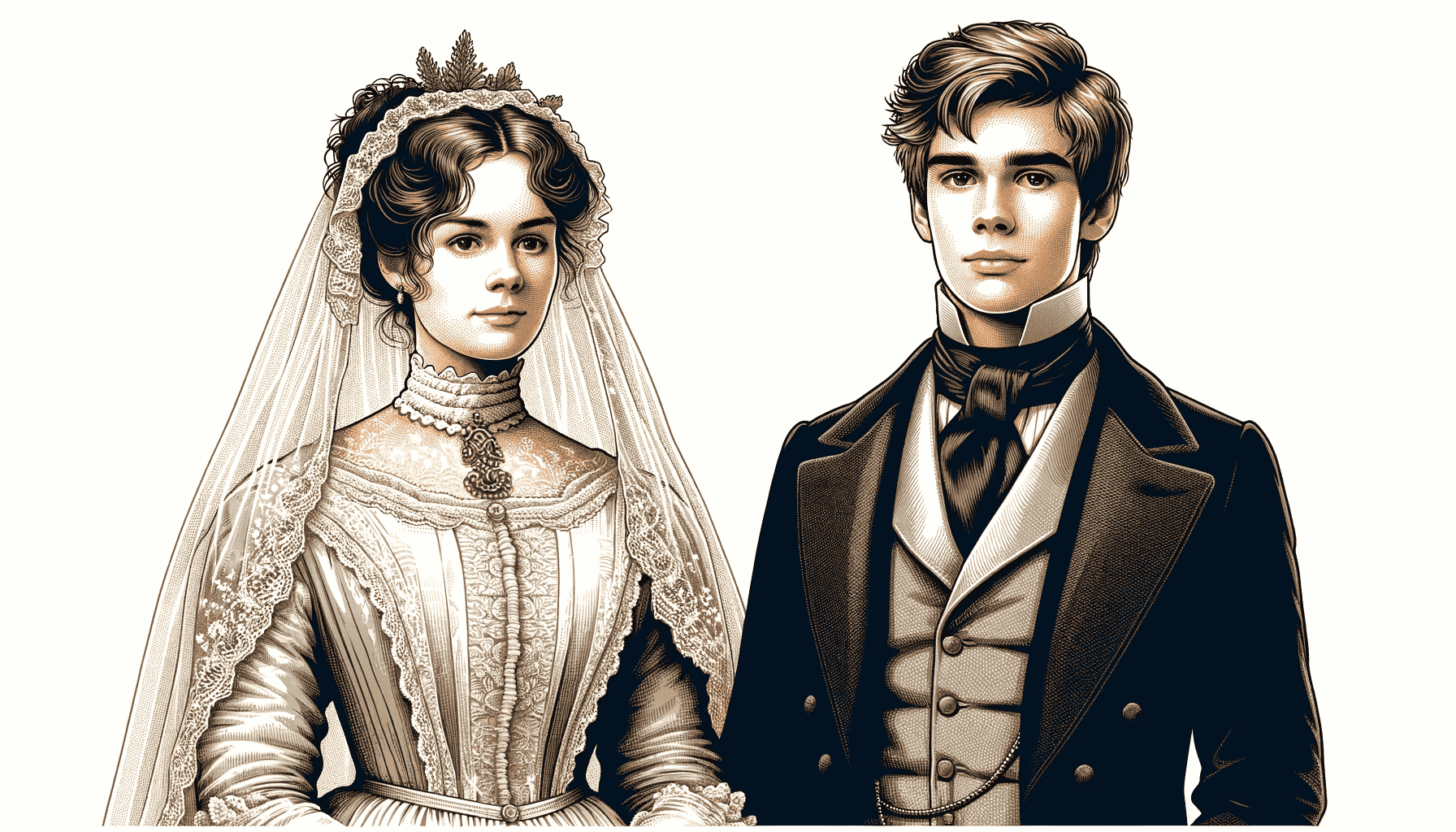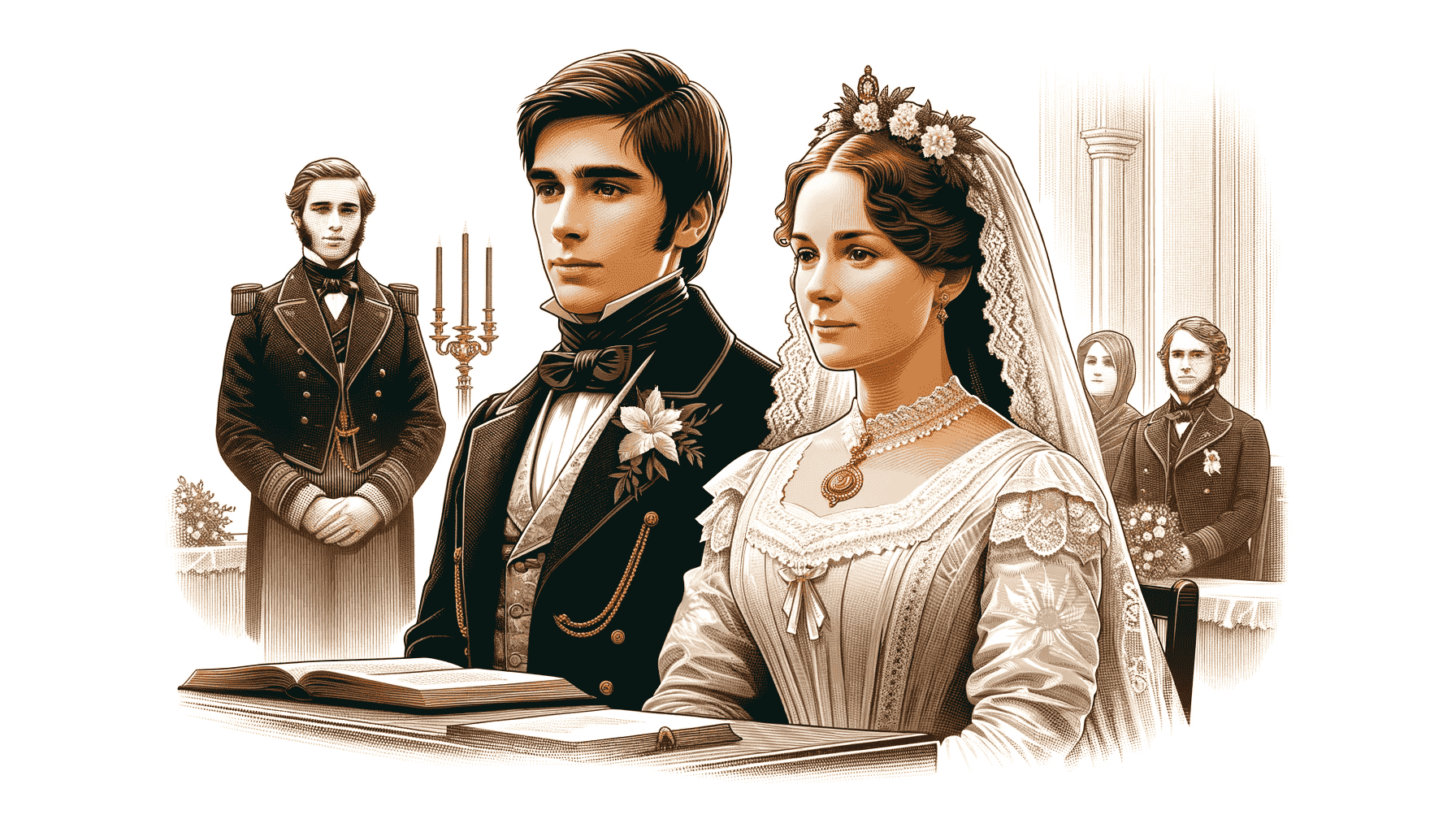Sharing is caring!
In this article, we’re going to take a closer look at some of the most notable, and sometimes controversial, mother-son relationships in history.
But before you jump to conclusions, it’s important to understand that these relationships were not always what we would typically think of as a ‘marriage’ today.
In many cases, they were deeply entwined with the politics, power struggles, and cultural norms of their time.
In ancient cultures and royal lineages, the lines of marriage, power, and family could blur, leading to unions that seem unconventional to us now.
These relationships often had less to do with personal affection and more with maintaining power, securing thrones, or fulfilling prophecies.
For instance, in ancient Egypt, it was not uncommon for pharaohs to marry within their family to keep the royal bloodline pure and unchallenged.
As we explore these mother-son marriages, it’s crucial to view them through the lens of the era and society in which they occurred.
That said, here are eight examples of mother-son relationships in history:
1. Oedipus and Jocasta

In Greek mythology, Oedipus, the king of Thebes, is a famous example of a mother-son marriage, albeit unknowingly.
The story goes that Oedipus was abandoned at birth and raised by the king and queen of Corinth.
After hearing a prophecy that he would kill his father and marry his mother, Oedipus fled, only to unknowingly fulfill this prophecy.
Oedipus ended up killing his biological father, Laius, in a dispute, and later solved the Sphinx’s riddle.
As a reward, he was given the throne of Thebes and Jocasta, his biological mother, as his wife. The tragic irony is that Oedipus tried to escape his fate, only to run right into it.
The revelation of their true relationship devastated both Oedipus and Jocasta.
This story has been a cornerstone of many psychological theories and literary works, underscoring themes of fate, tragedy, and the complexity of human actions and their unintended consequences.
2. Nero and Agrippina
Roman history provides another example with Emperor Nero and his mother, Agrippina the Younger.
Though not officially married, their relationship was rumored to be unusually close and possibly incestuous.
Agrippina was known for her ambitious and manipulative nature, having plotted her way to power through marriages and alliances.
Nero became emperor at a very young age, with Agrippina initially holding significant influence over him.
Some historical accounts suggest that she may have intended to marry Nero to maintain her power. However, as Nero grew older, he sought to break free from his mother’s control.
Their relationship eventually soured, leading to a dark twist where Nero ordered the assassination of Agrippina.
3. Ptolemy XI and Cleopatra Berenice

In the Ptolemaic dynasty of ancient Egypt, marriages between siblings or close relatives were common to preserve the royal bloodline.
One such instance was Ptolemy XI, who was married briefly to his mother, Cleopatra Berenice. This marriage was more about politics and maintaining power than a genuine relationship.
Ptolemy XI inherited the throne after the death of his father, Ptolemy X. His marriage to his mother was a strategic move to solidify his claim.
Such alliances were typical in royal families of that era, where power and lineage were paramount, and personal relationships often took a backseat.
This arrangement didn’t last long. Ptolemy XI soon had Cleopatra Berenice executed, a brutal move to consolidate his power. The act was not well-received, and Ptolemy XI himself faced a violent end.
4. Cypselus and Labda
Another lesser-known story comes from ancient Greece, involving the tyrant Cypselus of Corinth and his mother, Labda.
This relationship, unlike others, wasn’t characterized by marriage or incest but rather by a deep bond that played a significant role in Cypselus’ rise to power.
Cypselus’ father died when he was young, and Labda played a crucial role in protecting him.
There was a prophecy that Cypselus would overthrow the ruling aristocracy in Corinth, and as a result, he was targeted from a young age. Labda’s cunning and protective nature ensured his survival.
Once Cypselus became the ruler of Corinth, he remained close to his mother, who continued to be a significant influence in his life.
Their story is one of maternal devotion and the power of prophecy, illustrating the strong ties between a mother and her son in the face of adversity.
[Also Read: 10 Consequences Of Marrying An Unbeliever]
5. Elizabeth I and Thomas Seymour
Diving into English history, we encounter a complex relationship between Queen Elizabeth I and Thomas Seymour, her stepmother’s husband.
While not a marriage, their interactions raised eyebrows. After the death of Henry VIII,
Elizabeth, then a teenager, lived with her stepmother, Catherine Parr, and Thomas Seymour.
Seymour was known for his ambitious and flirtatious nature, and he paid a great deal of attention to Elizabeth.
Rumors swirled about the nature of their relationship. Some historians suggest that Seymour had hoped to marry Elizabeth to gain power.
He was later executed for treason, including allegations of plotting to marry Elizabeth. Elizabeth herself was questioned but maintained her innocence.
This episode in Elizabeth’s life was fraught with political intrigue and personal scandal. It showcased the dangerous waters of Tudor court life, where personal and political ambitions often collided with disastrous consequences.
6. Alexander the Great and Olympias
Alexander the Great’s relationship with his mother, Olympias, was pivotal in his life.
While there was no marital connection, the bond they shared greatly influenced his reign.
Olympias, a strong and intelligent woman, was known for her ambitious nature and profound impact on her son.
She played a significant role in securing Alexander’s position as king after the death of his father, Philip II.
Her political acumen and unwavering support were crucial in the tumultuous times that followed Philip’s assassination.
Olympias’ influence extended beyond Alexander’s ascension, as she continued to advise him during his conquests.
Their relationship demonstrates the significant impact a mother can have on her son’s career, especially in a historical context where female influence in politics was often indirect yet powerful.
[Interesting: 12 Red Flags Before Marriage You Shouldn’t Ignore]
7. Zhengde Emperor and Lady Zhang

Moving to Ming Dynasty China, we encounter the Zhengde Emperor, known for his unconventional behavior.
One of his most notable actions was his treatment of Lady Zhang, his wet nurse.
He elevated her status to an almost consort-like position, a highly unusual move in the imperial court.
The Zhengde Emperor was known for disregarding tradition and protocol. His elevation of Lady Zhang was seen as a sign of his deep respect and affection for her, though it stirred controversy and disapproval in the court.
She had a significant influence on him, although their relationship was more maternal than marital.
8. Augustus and Livia
In ancient Rome, the relationship between Emperor Augustus and his mother, Livia, was one of mutual respect and political alliance.
Livia was not just a mother but also a key advisor to Augustus. Her intelligence and political savvy were instrumental in the stability of Augustus’ reign.
While their relationship was strictly maternal, the level of influence Livia had was extraordinary for a woman in ancient Rome.
She advised Augustus on various matters, from administrative policies to diplomatic affairs. Livia’s role in shaping the early Roman Empire cannot be understated.
This example underlines the often-overlooked role of women in ancient politics, especially in nurturing and guiding influential leaders like Augustus.
Her influence persisted long after Augustus’ death, marking her as one of the most powerful women in Roman history.
Bear In Mind
Beyond a few mythological or speculative historical examples, there aren’t many well-documented cases of mother-son relationships that can be discussed with accuracy and respect for historical context.
Most relationships between mothers and sons in history, especially in royal or notable families, were centered around political alliances, maternal influence, or advisory roles rather than marital connections.
Moreover, discussing such relationships requires a careful approach, as many accounts from history are based on speculation, interpretation, or myth, rather than established facts.
It’s also crucial to consider the cultural and historical contexts of these relationships, as they often reflect the norms and values of their time, which can be vastly different from modern perspectives.
FAQs
Which prince married his own mother?
The most famous story of a prince marrying his mother comes from Greek mythology, involving Oedipus.
According to the myth, Oedipus, the prince of Thebes, unknowingly married his mother, Jocasta.
This happened after he unknowingly killed his father, fulfilling a prophecy that he would do both. It’s important to note that this is a mythological story and not a historical event.
Who is the mother who married her son?
In the realm of myths and legends, Jocasta is the notable mother who married her son.
In the tragic tale of Oedipus from Greek mythology, Jocasta married her son Oedipus, not realizing his true identity.
This story is a cornerstone of Greek tragedy and has been explored in many literary and psychological contexts.
Who was the boy who married his mother?
Oedipus, a character from Greek mythology, is the boy known for marrying his mother.
The story goes that Oedipus, abandoned as a child and raised by another family, later unknowingly killed his father and married his mother, Jocasta. This tale is famous for its tragic elements and the concept of fate.
Which king had married his own mother?
In the annals of mythology, the king who married his own mother was Oedipus, the King of Thebes in Greek mythology.
This marriage to his mother, Jocasta, was part of the tragic prophecy that defined Oedipus’s life. It’s a story from myth, not a historical fact.
Did any Egyptian pharaoh marry his mother?
In ancient Egyptian history, there is no well-documented case of a pharaoh marrying his mother.
However, royal marriages in ancient Egypt often involved close family members, primarily siblings, to maintain the royal bloodline. These practices were different from modern marital norms and were specific to the religious and cultural beliefs of ancient Egypt.
Are there any modern instances of a son marrying his mother?
In modern times, any instance of a son marrying his mother would be highly unusual and legally prohibited in most countries due to laws against incest.
Such cases, if they occur, are extremely rare and typically involve complex legal and psychological issues. They are not representative of societal norms or accepted practices.
Sharing is caring!
